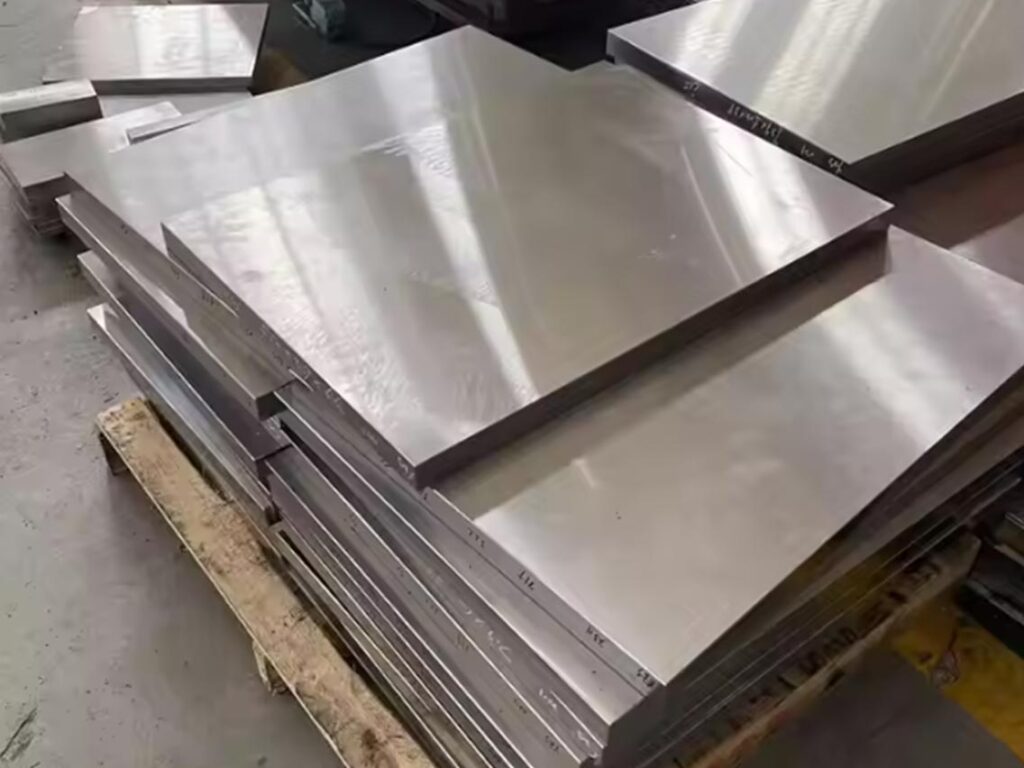Welcome to My Blog! 🌟
Before we dive into the content, I’d love for you to join me on my social media platforms. It’s where I share more insights, engage with our vibrant community, and post regular updates. Here’s how you can stay connected:
📘 Facebook: Connect with me on Facebook
Now, let’s embark on this journey together. I hope you find the content here insightful, engaging, and most importantly, valuable. Let’s explore, learn, and grow together! 🚀
Table of Contents
Introduction

P20 steel is a popular choice in the manufacturing and tooling industry, especially in the production of plastic molds, die casting tools, and other precision components. Known for its versatility and exceptional mechanical properties, this type of tool steel offers an excellent balance between hardness, toughness, and machinability. Whether you’re a toolmaker, mold designer, or part manufacturer, understanding why so many professionals rely on p20 steel can help you make smarter material choices.
In this blog, we’ll explore the top 6 reasons to consider using p20 steel in your next project. From its unique metallurgical characteristics to its performance in real-world applications, we’ll break down the essential facts that make it a standout material.
1. Excellent Machinability and Polishing Capabilities
One of the biggest advantages of p20 steel is its outstanding machinability. Unlike harder tool steels that require slower machining speeds and frequent tool changes, p20 allows for faster cutting and smoother finishes. This reduces manufacturing time and cost, which is critical in high-volume production environments.
In addition to ease of machining, p20 offers excellent polishing properties. This makes it a go-to material for creating mirror-finish molds used in plastic injection molding. The surface finish quality directly affects the appearance of molded products, making this feature particularly valuable in consumer goods production.
2. High Toughness and Wear Resistance
Toughness is the material’s ability to absorb energy and deform without fracturing. P20 steel offers a good combination of tensile strength and ductility, which results in high impact resistance. This toughness is especially important in tooling applications that experience repetitive stress or impact, such as die casting and molding operations.
Wear resistance is another critical property that contributes to the material’s longevity. P20 performs well under abrasive conditions, reducing the frequency of maintenance and replacement. These properties allow the steel to maintain dimensional accuracy over extended periods, ensuring consistent quality in mass production.
3. Pre-Hardened Structure for Dimensional Stability
P20 steel is typically supplied in a pre-hardened condition, which means it does not require additional heat treatment before use. This simplifies the manufacturing process and reduces lead times. The typical hardness ranges from 28 to 32 HRC, which is optimal for most plastic mold applications.
The pre-hardened state ensures dimensional stability, preventing warping and distortion during machining and assembly. This makes it a suitable choice for large and complex molds that require precision alignment and tolerances.
4. Versatility Across Various Applications

P20 steel is not limited to mold making. Its well-balanced properties make it useful in several other industrial applications. Here are some common uses:
- Plastic injection molds
- Die casting dies
- Blow molds
- Structural components
- Jigs and fixtures
- Machine parts
This versatility means that engineers and designers can rely on a single material for multiple functions, which simplifies material sourcing and inventory management.
5. Cost-Effectiveness and Availability
Compared to other premium-grade tool steels, p20 steel is relatively affordable and widely available. This makes it an attractive option for businesses aiming to optimize their production costs without compromising on performance.
Additionally, the reduced need for post-machining heat treatment translates into further savings in terms of labor and energy consumption. When assessing total lifecycle costs, including material, machining, and maintenance, p20 proves to be a cost-efficient solution.
Table: Comparative Properties of P20 Steel
| Property | P20 Steel | H13 Steel | S7 Steel |
|---|---|---|---|
| Hardness (HRC) | 28-32 | 44-52 | 54-56 |
| Machinability | Excellent | Moderate | Moderate |
| Toughness | High | High | Very High |
| Polishing Capability | Very Good | Good | Moderate |
| Heat Treatment Required | No | Yes | Yes |
| Typical Applications | Molds, dies | Hot work tools | Shock-resistant tools |
6. Consistency and Global Standards Compliance

P20 steel conforms to international standards such as AISI P20 (USA), DIN 1.2311 (Germany), and JIS SKD61 (Japan). This standardization ensures consistent quality and predictable performance across global supply chains.
When you’re sourcing from multiple vendors or managing international projects, having a standardized material like p20 minimizes variability. This consistency is crucial for maintaining quality control, reducing design modifications, and avoiding compatibility issues in multinational production systems.
Conclusion
Choosing the right material is a critical step in ensuring the success of any engineering or manufacturing project. P20 steel stands out as a strong candidate for applications demanding a balanced combination of machinability, toughness, polishability, and cost-efficiency.
By understanding the core benefits outlined above, you can make informed decisions that enhance your product’s quality while keeping production streamlined. Whether you’re designing a new mold or re-evaluating your current material choices, p20 offers a well-rounded option worth serious consideration.
For companies looking to scale operations while maintaining quality, switching to p20 could yield long-term savings and reliability.
FAQ
What is the typical hardness range of p20 steel?
The standard hardness for p20 steel is between 28 to 32 HRC in its pre-hardened form, which suits most mold-making applications.
Can p20 steel be heat-treated for higher hardness?
While it comes pre-hardened, further heat treatment is possible to achieve slightly higher hardness. However, it may reduce toughness and machinability.
Is p20 suitable for high-temperature applications?
P20 is not the best option for extremely high-temperature environments. For such use cases, hot work steels like H13 are more appropriate.
How does p20 compare to H13?
H13 offers higher heat resistance and hardness, while p20 is easier to machine and more cost-effective for general-purpose molds.
Does p20 steel corrode?
Though better than regular carbon steels, p20 is not fully corrosion-resistant. In moisture-prone environments, protective coatings or surface treatments are recommended.
Can p20 be welded?
Yes, p20 steel can be welded using proper procedures. Post-weld heat treatment may be necessary to restore hardness in the affected zone.
Is it good for DIY or small-batch projects?
Yes, due to its ease of machining and lack of heat treatment requirements, p20 is a great material for smaller scale operations and prototype tooling.

